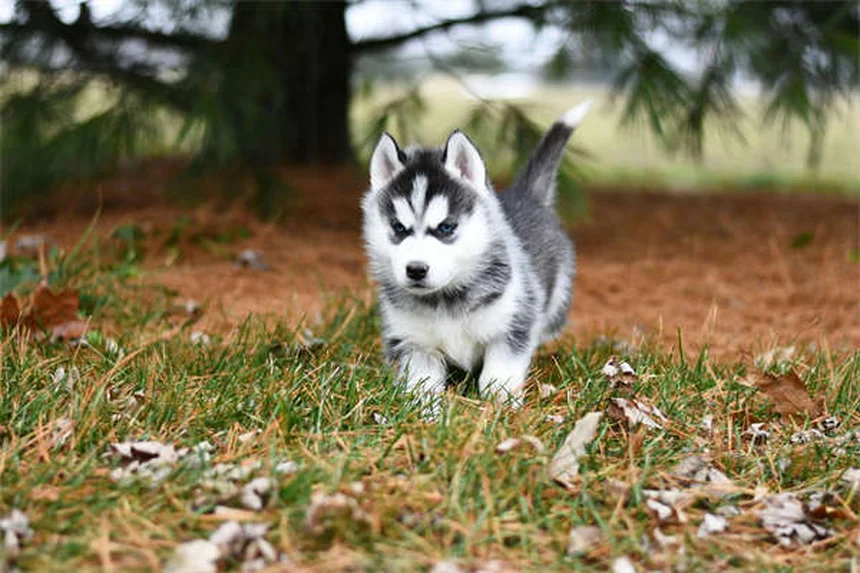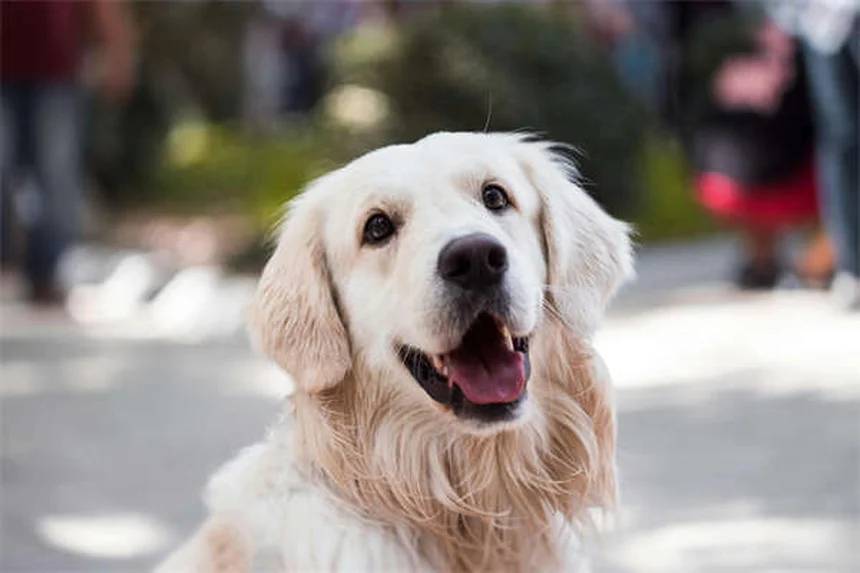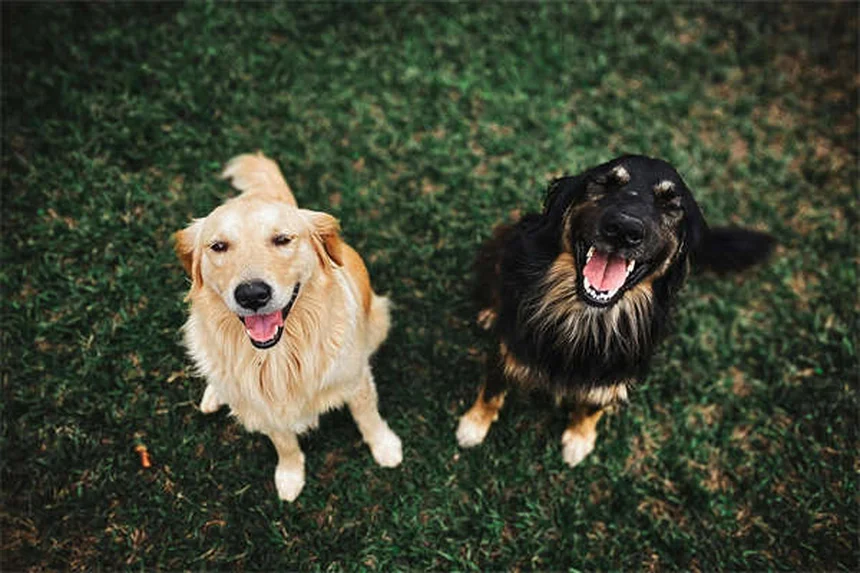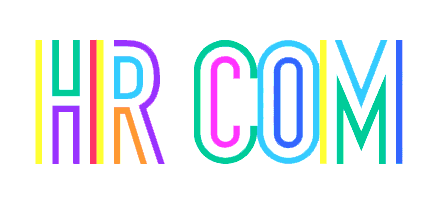Advertisement
Wondering how to help your dog with fireworks anxiety? Here's the deal: Fireworks can be absolutely terrifying for our furry friends. The good news? There are plenty of effective ways to help your pup stay calm when those loud booms start.I've worked with countless anxious dogs over the years, and let me tell you - desensitization training combined with the right environment makes a world of difference. Your dog isn't being dramatic - their hearing is about four times more sensitive than ours! Those fireworks basically sound like the apocalypse to them.In this guide, we'll walk through exactly what works - from year-round sound training to last-minute calming tricks. Whether it's the Fourth of July or New Year's Eve, these strategies will help your dog feel safer and more relaxed. Let's dive in!
E.g. :Dog Arthritis in Cold Weather: 7 Proven Ways to Ease Your Pup's Pain
- 1、Helping Your Pup Overcome Firework Fears
- 2、Creating a Safe Space
- 3、Pre-Fireworks Preparation
- 4、During the Fireworks
- 5、When to Seek Professional Help
- 6、Final Thoughts
- 7、Beyond the Basics: Advanced Firework Fear Solutions
- 8、Understanding Breed Differences
- 9、Community Support Strategies
- 10、Alternative Celebrations
- 11、Long-Term Confidence Building
- 12、FAQs
Helping Your Pup Overcome Firework Fears
Why Fireworks Terrify Dogs
Let's be real - fireworks are basically explosions in the sky. While we humans ooh and aah, our canine buddies hear what sounds like the world ending. Their hearing is way more sensitive than ours - about four times more acute. Imagine hearing those booms amplified to concert-level volume!
Common signs your dog is struggling include:
- Hiding under furniture (even if they never usually do)
- Trembling like they're in an earthquake
- Pacing like they're training for a doggy marathon
- Whining like they're telling you the world's saddest story
Sound Training: The Year-Round Solution
Here's a fun fact: Did you know you can train your dog to tolerate fireworks just like you'd train them to sit or stay? It's called desensitization training, and it works wonders when done consistently.
Start by playing firework sounds at barely audible levels while showering your pup with treats and praise. Think of it like exposure therapy - we're building up their tolerance slowly. Over weeks and months, gradually increase the volume while keeping the positive vibes flowing.
| Training Stage | Volume Level | Duration | Treat Frequency |
|---|---|---|---|
| Beginner | Whisper quiet | 2-3 minutes | Every 10 seconds |
| Intermediate | TV commercial level | 5 minutes | Every 15 seconds |
| Advanced | Normal speaking volume | 10 minutes | Every 30 seconds |
Creating a Safe Space
 Photos provided by pixabay
Photos provided by pixabay
The Magic of Anxiety Vests
Ever notice how swaddling calms babies? The same principle works for dogs! Pressure wraps like the ThunderShirt® give your pup that comforting "hug" feeling that can reduce fireworks anxiety by up to 80% according to some studies.
Pro tip: Don't wait until fireworks night to try the vest. Get your dog used to wearing it during normal days first - maybe while watching TV or during cuddle time. That way, when the big booms start, they'll already associate the vest with comfort.
Soundproofing Your Dog's Sanctuary
Here's a question: Why do we think dogs should just tough it out through fireworks when we wouldn't expect that from a scared child? Exactly! Creating a sound-buffered safe space is crucial.
Try these sound-muffling tricks:
- White noise machines (the same kind parents use for babies)
- Classical music (dogs seem to prefer Mozart over Metallica)
- Thick blankets over crates (like building a pillow fort)
- Closing windows and drawing curtains
Pre-Fireworks Preparation
Energy Drain: The Tired Dog Strategy
A tired dog is a calm dog - it's that simple. Schedule a marathon play session or extra-long walk before fireworks start. Think of it like taking your dog to an amusement park - by the time the fireworks begin, they'll be ready to crash.
Great pre-fireworks activities include:
- Dog park playdates
- Long hikes with lots of sniffing
- Interactive puzzle toys
- Swimming sessions (if your dog likes water)
 Photos provided by pixabay
Photos provided by pixabay
The Magic of Anxiety Vests
Picture this: It's 9 PM, fireworks are booming, and your dog suddenly needs to pee. Not ideal! Adjust your schedule so potty breaks and meals happen well before the explosions start.
Here's my recommended timeline:
- Last walk: At least 2 hours before sunset
- Dinner: 3-4 hours before fireworks typically start
- Water access: Unlimited until 1 hour before, then limited
During the Fireworks
Distraction Tactics That Work
Ever tried to ignore a fireworks show while eating the most amazing steak of your life? That's the energy we're going for! High-value distractions can work miracles.
Top distraction options:
- Frozen Kong toys stuffed with peanut butter
- Long-lasting chews (bully sticks, yak chews)
- Interactive food puzzles
- New toys they've never seen before
To Comfort or Not to Comfort?
Here's the million-dollar question: Does comforting your scared dog actually make things worse? The answer might surprise you - no, it doesn't! That old myth about reinforcing fear has been debunked.
Your dog isn't being dramatic - they're genuinely terrified. Comforting them with gentle pets and calm reassurance helps them feel safe. Think of it like when you were scared as a kid - didn't a parent's hug help?
When to Seek Professional Help
 Photos provided by pixabay
Photos provided by pixabay
The Magic of Anxiety Vests
Sometimes, training and comfort aren't enough. That's when calming aids can step in. Options like VetriScience® chews or Adaptil® pheromone diffusers can take the edge off without making your dog drowsy.
Important note: Always check with your vet before trying supplements, especially if your dog takes other medications. Better safe than sorry!
Knowing When to Call the Vet
If your dog's fireworks anxiety includes any of these red flags, it's time for professional help:
- Self-harm (chewing/licking to the point of injury)
- Aggression (growling, snapping, or biting when scared)
- Destructive behavior (tearing up walls or furniture)
- Prolonged shaking or panting (lasting hours after fireworks end)
Remember, there's no shame in asking for help. Your vet might recommend temporary medication or refer you to a veterinary behaviorist - kind of like a doggy therapist!
Final Thoughts
Helping your dog through fireworks anxiety is a marathon, not a sprint. It takes patience, consistency, and sometimes a multi-pronged approach. But seeing your pup go from terrified to tolerant? That's worth every bit of effort.
What's your dog's biggest fear trigger? For my neighbor's golden retriever, it's those high-pitched whistling fireworks - turns him into a 75-pound lap dog! Whatever your pup struggles with, know that with time and the right techniques, fireworks season can become much less stressful for everyone.
Beyond the Basics: Advanced Firework Fear Solutions
The Power of Positive Association
You know how the smell of popcorn instantly makes you think of movie theaters? We can create similar happy connections for dogs with fireworks sounds. Timing is everything here - play those firework recordings during your pup's favorite activities.
Try syncing firework sounds with:
- Meal times (the sound means delicious food is coming!)
- Play sessions (boom equals tug-of-war time)
- Massage sessions (fireworks predict belly rubs)
I've seen this work wonders with my cousin's border collie. Now when she hears distant booms, she actually looks around excitedly for her favorite squeaky toy instead of hiding under the bed. It took about three months of consistent practice, but the transformation was incredible.
Tech Solutions You Haven't Tried
Ever heard of doggy noise-canceling headphones? They're not just a gimmick! Brands like Mutt Muffs use the same technology as pilot headphones to reduce noise by about 20 decibels. That's enough to turn a scary boom into a dull thud.
Other cool gadgets worth considering:
- Smart collars that vibrate gently to distract from loud noises
- Light projectors that create calming visual patterns on ceilings
- Specialized dog beds with built-in white noise generators
Here's a funny story - my friend's beagle actually fell asleep during New Year's Eve fireworks while wearing his noise-canceling headphones. The neighbors couldn't believe it when they saw him snoozing peacefully on the porch!
Understanding Breed Differences
Which Breeds Struggle Most?
Did you know some dog breeds are genetically predisposed to noise phobias? Herding breeds like collies and shepherds tend to be extra sensitive, while retrievers often handle loud noises better. But every dog is unique - I've met fearless chihuahuas and terrified great danes!
| Breed Type | Typical Reaction | Special Considerations |
|---|---|---|
| Herding Dogs | Very sensitive | May try to "herd" family during stress |
| Hunting Dogs | Moderate sensitivity | Distract well with scent games |
| Working Dogs | Varies widely | Often respond well to "jobs" during stress |
Age Matters Too
Here's something most people don't think about - a dog's hearing changes with age just like ours does. Senior dogs often develop high-frequency hearing loss, which means those whistling fireworks might not bother them as much. But the deep booms? Those can still rattle their bones.
Puppies under six months typically haven't developed noise phobias yet - this is the perfect time to start positive firework associations. Middle-aged dogs (4-8 years) often show the strongest reactions, while many seniors just get grumpy about the disruption to their sleep schedule!
Community Support Strategies
Neighborhood Firework Watch
Ever wish you could coordinate with neighbors about firework plans? In my area, we started a community alert system where people text the block when they're planning fireworks. This gives dog owners time to prepare their pups.
Some communities take it further with:
- Designated "quiet zones" where fireworks aren't allowed
- Organized daytime celebrations instead of nighttime displays
- Fundraisers for silent fireworks (yes, they exist!)
Last summer, our neighborhood raised enough money to replace the traditional July 4th fireworks with an amazing drone light show. The dogs (and veterans with PTSD) in our area were so much happier!
Social Media Can Help
Here's a question: Why suffer through firework season alone when you can connect with thousands of other dog owners online? Facebook groups like "Noise Phobic Dogs" share real-time tips and moral support during tough holidays.
I've learned so many creative solutions from these groups - like using a weighted blanket for extra-large dogs (who don't fit in thunder shirts) or making DIY "snuffle mats" to keep dogs distracted. The best part? Seeing photos of formerly terrified pups gradually learning to cope.
Alternative Celebrations
Creating New Traditions
Who says holidays need explosions to be fun? My family switched to glow-in-the-dark frisbee tournaments and silent disco parties (with dog-friendly headphones). Our golden retriever now associates holidays with playtime instead of panic.
Other quiet celebration ideas:
- Bubble machines (many dogs love chasing them)
- Laser light shows (without the loud music)
- Daytime parades with decorated wagons
Last New Year's Eve, we hosted a "puppy pajama party" where all the dogs wore their comfiest outfits and we counted down to... well, bedtime actually. It was a hit!
Traveling to Quiet Zones
If your area has particularly intense fireworks, consider a mini getaway to somewhere quieter. Many campgrounds and rural Airbnb spots advertise as "firework-free zones" during holidays.
Pro tip: Look for places with:
- Thick forest surroundings (natural sound barrier)
- No nearby towns (less risk of surprise displays)
- Dog-friendly amenities (hiking trails, lakes, etc.)
My sister takes her anxious greyhound to a lakeside cabin every July 4th. They spend the day swimming and the night cuddled up watching movies with the windows closed. The dog now gets excited when he sees the suitcase come out!
Long-Term Confidence Building
General Anxiety Reduction
Here's an important truth: Dogs with overall confidence handle specific fears better. Regular confidence-building activities can make your pup more resilient to all kinds of stressors, not just fireworks.
Great confidence boosters include:
- Agility training (even makeshift courses at home)
- Novelty experiences (different walking routes, surfaces)
- Positive socialization (calm meetups with stable dogs)
I watched a fearful rescue transform after six months of weekly agility classes. By next fireworks season, she was only mildly concerned instead of panicked. The trainer explained that overcoming small challenges built her overall coping skills.
Reading Canine Body Language
Did you know dogs show stress signals long before obvious panic sets in? Learning to spot early warning signs lets you intervene before fear escalates.
Subtle signs to watch for:
- Excessive lip licking (when not hungry)
- Whale eye (showing the whites of their eyes)
- Low tail carriage (even if still wagging)
- Yawning when not tired
My aha moment came when I noticed my dog always yawned three times before fireworks started in our area. Now when I see that first yawn, I know it's time to break out the peanut butter Kong and turn on some white noise!
E.g. :9 Tips for Helping a Dog That's Scared of Fireworks | PetMD
FAQs
Q: Can I comfort my scared dog during fireworks or will that make it worse?
A: This is one of the most common questions I get! The old myth that comforting your dog reinforces their fear is completely false. When your pup is shaking during fireworks, they're experiencing genuine terror - not trying to manipulate you. Providing gentle pets, calm words, and physical comfort can actually help lower their stress hormones. Think about it - when you're scared, doesn't a hug help? Just keep your energy calm and relaxed while comforting them.
Q: How early should I start preparing my dog for fireworks season?
A: The earlier, the better! For sound desensitization training, I recommend starting at least 2-3 months before fireworks season. This gives you time to gradually increase exposure levels. But even if fireworks are tomorrow, you can still help by creating a safe space, using anxiety wraps, and tiring your dog out beforehand. Remember - some preparation is always better than none!
Q: Are anxiety vests really effective for dogs scared of fireworks?
A: Absolutely! Studies show pressure wraps like the ThunderShirt® can reduce anxiety symptoms by up to 80%. The gentle, constant pressure works like swaddling for babies - it triggers a calming response. Just make sure to acclimate your dog to the vest before fireworks night. Practice putting it on during calm moments with treats, so they associate it with positive experiences.
Q: What's the best way to soundproof a room for my dog during fireworks?
A: Start by choosing an interior room without windows if possible. Then layer your soundproofing: white noise machines, classical music, thick blankets over crates, and closed curtains all help. I've found that playing special dog relaxation music (yes, that's a thing!) at about 50-60% volume works wonders to mask firework noises. Just make sure your dog can leave the area if they want to.
Q: When should I consider medication for my dog's fireworks anxiety?
A: If your dog shows any of these signs, it's time to talk to your vet: self-harm behaviors, aggression, destructive tendencies, or prolonged shaking/panting after fireworks end. Temporary medication can be a lifesaver for severely anxious dogs during fireworks season. Your vet might recommend trazodone or other safe options that take the edge off without making your dog drowsy.


















